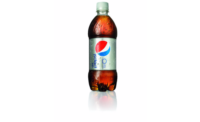It turns out a little bit of aspartame probably isn’t so bad for you after all — at least when it comes to a certain type of cancer.
Moderate consumption of the low-calorie artificial sweetener aspartame, usually found in sugar-free candy such as gum and breath mints, does not lead to an increased risk of non-Hodgkin lymphoma (NHL), a Journal of Nutrition study reports.
In the Cancer Prevention Study-II Nutrition Cohort, more than 100,000 older men and women completed questionnaires in 1992, 1999 and 2003 about their diet and lifestyle. The questionnaire included questions related to consumption of artificially sweetened beverages and sweeteners containing aspartame.
Researchers from the American Cancer Society found no significant association between aspartame consumption and NHL.
“Overall, results of this study suggest that moderate consumption levels of artificially and sugar-sweetened carbonated beverages are unlikely to increase the risk of NHL in older men and women,” the researchers concluded.
These new results affirm previous findings.
“The study supports the decades of research that have continued to find that aspartame is safe for use in foods and beverages,” says Haley Stevens, president of the Calorie Control Council. “It also supports the conclusions of the National Cancer Institute, which have determined that aspartame does not increase a person's risk of developing cancer.”
Regulatory and governmental agencies such as the U.S. Food and Drug Administration, Health Canada and the European Food Safety Authority have also deemed aspartame as safe.
To read the study, see Artificially and Sugar-Sweetened Carbonated Beverage Consumption Is Not Associated with Risk of Lymphoid Neoplasms in Older Men and Women.



